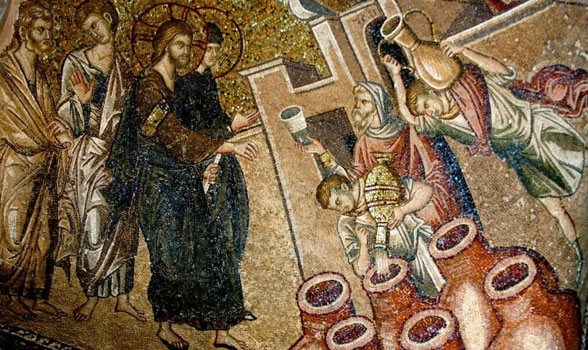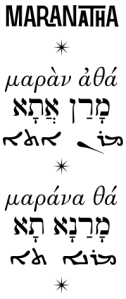This article is the first of a series on Meals with Jesus which formed part of this year’s Lent course. This first is on the pericope of the Wedding at Cana, John 2·1–11.

Let us begin at the end!
“On the third day there was a wedding in Cana of Galilee.”
That could mean Tuesday, but it doesn’t. It means Sunday: Easter Sunday, the third day when our Lord was risen! And so we begin at the end, for the end is the beginning, a new beginning. But shouldn’t the wedding be the happy-ever-after at the end? Whose wedding is it? Even that’s the wrong way round: invitations are usually sent before the wedding feast, not after it. We’re told the name of the groom in chapter three, and, as for the bride, try the next chapter.
This wedding at Cana seems all wrong; it’s one big question mark. It’s odd how we hear of a miracle of transmutating liquids and find that easier to cope with and understand than the grand narrative that this unsettling gospel is unfolding for us.





